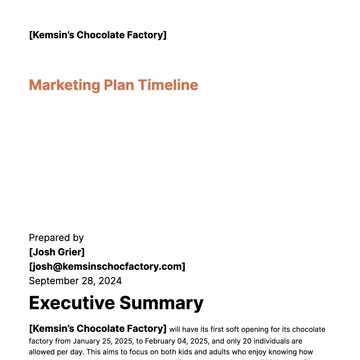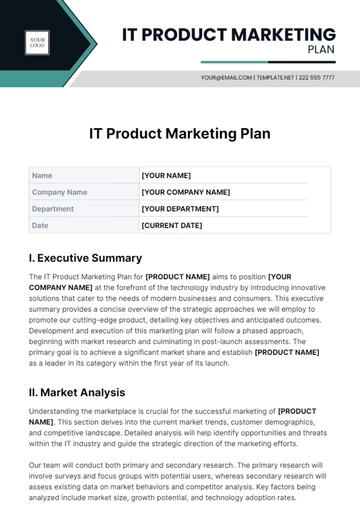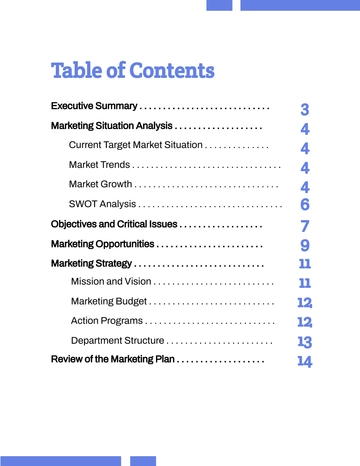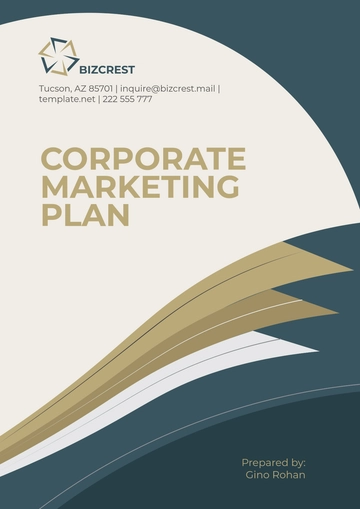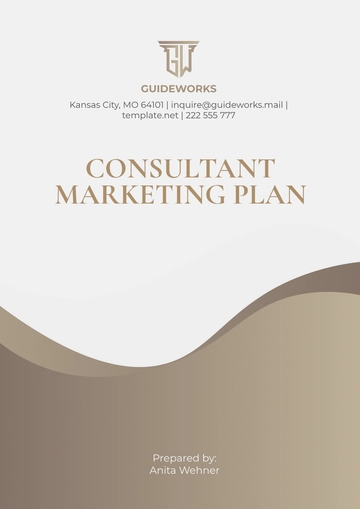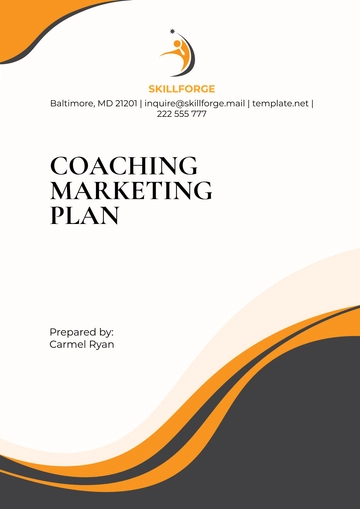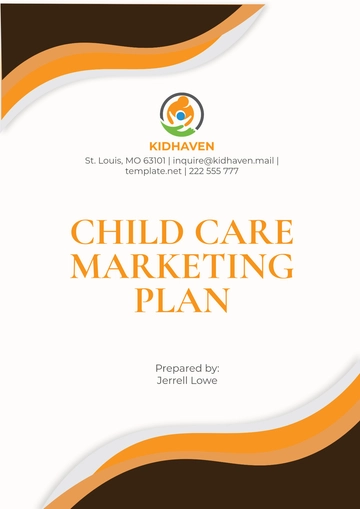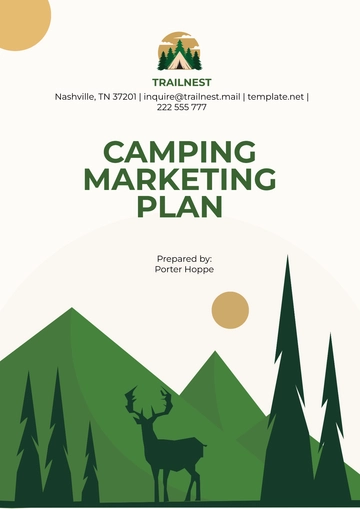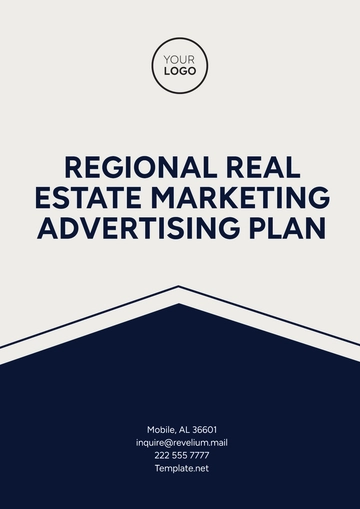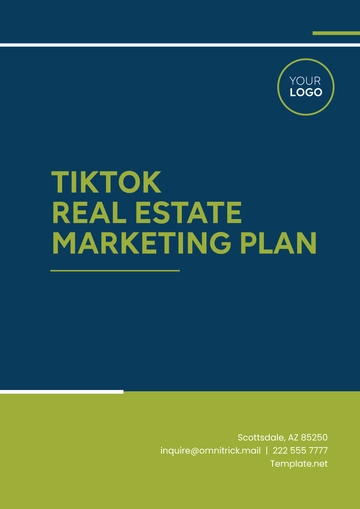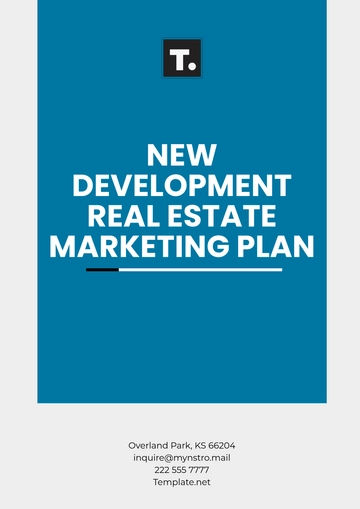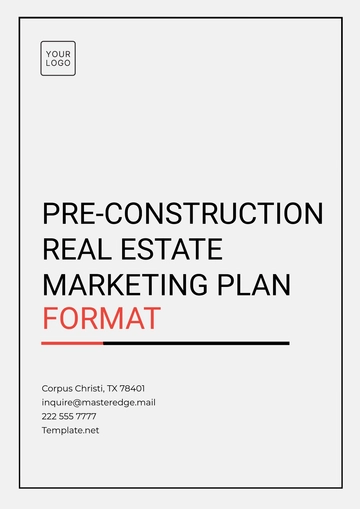Free Real Estate Marketing Plan

Prepared by:
[YOUR NAME]
[YOUR COMPANY NAME]
Introduction
This Real Estate Marketing Plan outlines a strategic approach to effectively promoting properties, engaging prospective clients, and achieving sales targets. Tailored for [YOUR COMPANY NAME], it emphasizes innovative strategies, clear timelines, and measurable outcomes to ensure success in a competitive real estate market.
Objectives
Increase Property Visibility: Enhance online and offline presence to reach a broader audience.
Generate Quality Leads: Attract serious buyers, renters, and investors through targeted campaigns.
Strengthen Client Relationships: Build trust and long-term partnerships with clients and stakeholders.
Achieve Sales Targets: Meet or exceed the sales or rental goals within the specified timeframe.
Target Audience
Primary Buyers: Families, young professionals, retirees, or investors seeking properties.
Sellers/Developers: Clients looking to list their properties for sale or rent.
Real Estate Investors: Individuals or entities interested in residential or commercial projects.
Market Analysis
Local Market Trends: Identify high-demand areas, average pricing, and buyer preferences.
Competitor Strategies: Analyze marketing tactics of competing real estate agencies and agents.
Buyer Demographics: Focus on age, income levels, lifestyle preferences, and geographic interests.
Marketing Strategies
1. Online Marketing
Property Listings: Use platforms like Zillow, Realtor.com, or local MLS systems to maximize exposure.
Social Media Campaigns: Post regular updates on Instagram, Facebook, and LinkedIn platforms.
Paid Advertising: Run Google Ads and social media ads targeting specific buyer profiles.
2. Content Marketing
Blog Posts: Share tips on buying, selling, and home improvement to attract traffic.
Video Tours: Create virtual tours of properties for platforms like YouTube and Facebook.
Email Campaigns: Send personalized newsletters with new listings, market updates, and client success stories.
3. Traditional Marketing
Print Media: Advertise in local newspapers, magazines, and real estate brochures.
Open Houses: Host events to showcase properties directly to interested buyers.
Signage: Use visually appealing banners and for-sale signs on properties.
4. Networking and Partnerships
Collaborate with Local Businesses: Partner with interior designers, mortgage brokers, and contractors.
Community Engagement: Sponsor local events or participate in neighborhood activities.
Referral Programs: Offer incentives for referrals from satisfied clients.
Implementation Plan
Activity | Timeline | Responsibility | Expected Outcome |
|---|---|---|---|
Create property listings | Week 1 | Marketing Team | Enhanced visibility of properties |
Launch social campaigns | Weeks 2-4 | Social Media Manager | Increased engagement and leads |
Host open houses | Weeks 3-6 | Sales Team | Direct buyer interaction |
Implement email marketing | Week 5 | Marketing Team | Improved lead nurturing |
Budget
Category | Amount ($) |
|---|---|
Online Advertising | 5,000 |
Print Media | 2,000 |
Events and Open Houses | 1,500 |
Miscellaneous | 1,000 |
Total | 9,500 |
Key Performance Indicators (KPIs)
Leads Generated: Number of inquiries from campaigns.
Conversion Rate: Percentage of leads converted to buyers or renters.
Online Engagement: Clicks, views, and shares on digital platforms.
Sales Targets: Number of properties sold or rented.
Conclusion
This Real Estate Marketing Plan provides a comprehensive roadmap for promoting properties and achieving business goals. By leveraging both digital and traditional marketing strategies, the plan ensures maximum outreach, quality lead generation, and successful sales outcomes.
- 100% Customizable, free editor
- Access 1 Million+ Templates, photo’s & graphics
- Download or share as a template
- Click and replace photos, graphics, text, backgrounds
- Resize, crop, AI write & more
- Access advanced editor
The Real Estate Marketing Plan Template from Template.net is a fully editable and customizable solution designed to streamline your marketing strategy. Tailor it to fit your specific needs with ease, using our Ai Editor Tool for a seamless editing experience. Perfect for real estate professionals looking to create impactful and personalized marketing plans.

